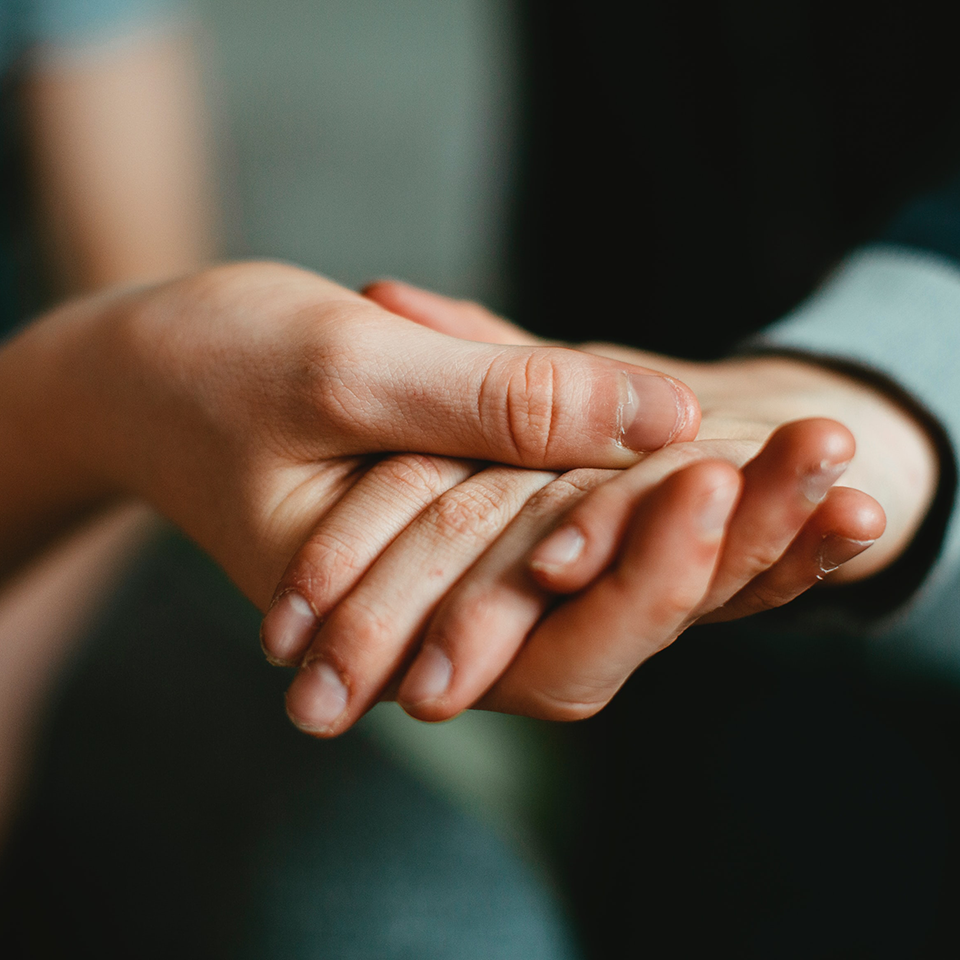On this Good Friday, I am taken back to a cold, gray morning a few weeks ago. I stood alone at the curb at Dallas Fort Worth Airport, shivering in a light jacket, and feeling hemmed in by the endless concrete of the terminal and the parking garage on each side of me. Other travelers, also standing alone, looked out anxiously as a line of sedans passed slowly by, with masked drivers trying to match the masked travelers with the photos on their phones. One by one, faceless rideshare contractors, paid in contactless ones and zeroes, drove off with faceless home or hotel-bound customers, never to meet again afterward.
My story unfolded differently.
In an instant, the gloominess of my scene was shattered by the smiling face and waving arms of a friend of mine who pulled up to take me home. He got out of his car, gave me a hug, and helped me with my luggage. Soon we were on our way, listening to music and catching up on the goings-on in each other’s lives. In the grand scheme of things, it was a small sacrifice for my friend to make; but until he made it, I had not realized—if only by the anecdotal evidence of my fellow travelers that day—just how rare the everyday sacrifices of friendship have become.
On that Lenten weekday, I began reflecting on the little things that make up a Christ-like life. How are we bearing our small crosses, in imitation of Christ’s ultimate one? Our consumer culture encourages us to offload our needs onto an impersonal market. We would rather pay exorbitant interest to a bank than ask a friend for a loan. We would rather eat lunch alone in our cars than ask a coworker to sit with us in the breakroom. We are afraid to ask for basic companionship, and we are slow to offer ourselves to others, even though we are probably willing—even eager—to be useful. Let this Good Friday show us a better way.
I am also thinking a little further back in my life, to one of the most stressful days I’ve ever had, when my wife and I moved from Orlando, Florida, to New Haven, Connecticut. Like most bad days, I could have and should have handled this one totally differently. But I cannot save myself, no matter how hard I try. It took someone else’s human touch to snap me out of my madness. It took someone else’s sacrifice of his time to redeem mine.
When we arrived in our new city, the outgoing occupants of our apartment had not yet cleared out. We were forced to stay in a hotel for several days with our locked U-Haul sitting expensively in the parking lot. Finally, the tenants vacated, and we had a narrow window of time in which to unload all of our earthly belongings and return the truck. I dropped and damaged one piece of furniture after another. I couldn’t get the boxes out fast enough. Our couch would not fit through the door. My wife was despondent that the place was filthy from top to bottom. I absolutely snapped. And then, by divine appointment, a young man I had just met the day before showed up unexpectedly and offered to help. He was completely calm, and he had a solution for everything. He bore my burdens that day in more ways than one, and since then we have become close friends, sacrificing for each other over the years in small ways and great.
In a memorable episode of Seinfeld, Jerry makes friends with one of his heroes, the former New York Mets ballplayer Keith Hernandez. Before he knows it, Jerry is helping Keith move. Then he drives him to the airport. Jerry’s oldest friend, George, objects to how fast the friendship is developing, noting that these two favors represent an intimacy reserved only for the closest of relationships. George may be understandably jealous, but part of the humor of all four main characters on Seinfeld rests in their constant annoyance at the impositions of others. Their lives are not oriented toward true charity, so a relative stranger’s needs seem more like a joke than a joy. In another episode, Jerry, George, Elaine, and Kramer meet four New Yorkers very much like them, only they are clearly interested in growing in virtue. The “bizarro” charitable versions of Jerry, George, Elaine, and Kramer disgust them, to wildly humorous and poignant effect.
Giving someone a ride or helping someone move is a far cry from experiencing the depth of Jesus’s words, “No one has greater love than this, to lay down one’s life for one’s friends” (John 15:13). We may feel far removed from the tangible sacrifices made for Christ by Simon of Cyrene or Joseph of Arimathea. And yet, are not even our small acts of charity connected to Christ’s commandment to love each other as he loves us? In some ways, are we not patterning our lives more closely on his example on the cross by offering many daily gifts rather than imagining we might one day get to do some exciting and glorious deed?
Why should anyone have to take a rideshare service from the airport or unload a U-Haul by himself? For that matter, why should a Catholic ever have to stay in a hotel? Surely wherever we go, a brother or sister in Christ could give us a bed and a meal. Maybe what the world calls a burden is actually a blessing.
As we do each year in the Good Friday liturgy, today we hear St. John’s Passion narrative, and we relive the free, saving gift of Christ’s sacrifice. What a friend we have in Jesus; and what friends we can be, in him, to one another.
